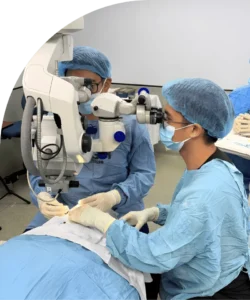Orthopedic specialists play a crucial role in helping people overcome musculoskeletal challenges and regain their active lifestyles. These medical professionals focus on diagnosing, treating, and preventing conditions related to bones, joints, muscles, ligaments, and tendons. Whether dealing with a sports injury, arthritis, or post-surgical rehabilitation, orthopedic specialists are dedicated to restoring mobility, reducing pain, and improving overall orthopedic wellness.
What Do Orthopedic Specialists Do?
Orthopedic specialists are medical doctors with specialized training in musculoskeletal health. They evaluate and manage a wide range of conditions, including fractures, dislocations, degenerative diseases like osteoarthritis, tendonitis, and more complex injuries such as ligament tears and spinal disorders. Their goal is not just to treat symptoms but to address the root cause of pain and immobility.
The scope of an orthopedic specialist’s work includes both surgical and non-surgical treatments. They often use cutting-edge technologies and therapies designed to accelerate healing and improve patient outcomes. From advanced imaging techniques to minimally invasive surgical procedures, these experts leverage innovation to provide tailored solutions for each patient.
When Should You See an Orthopedic Specialist?
Identifying the right time to consult an orthopedic specialist can make a significant difference in the course of treatment and recovery. If you experience persistent joint or bone pain that doesn’t improve with rest, swelling, stiffness, or decreased range of motion, it’s advisable to seek professional advice. Injuries sustained from accidents, sports, or falls that result in immediate pain or loss of function also warrant timely evaluation by an orthopedic specialist.
Early diagnosis is key to preventing complications and chronic issues. For example, untreated ligament injuries can lead to joint instability, while delayed treatment of fractures may result in improper healing. Orthopedic specialists provide a comprehensive assessment that guides appropriate treatment strategies, helping patients avoid unnecessary suffering and regain their quality of life.
The Orthopedic Assessment and Diagnosis Process
The first step when visiting an orthopedic specialist involves a thorough clinical evaluation. This includes a detailed medical history review and physical examination focused on the affected area. Specialists assess factors such as pain intensity, mobility limitations, muscle strength, and joint stability to understand the condition fully.
Diagnostic tools play a critical role in forming an accurate diagnosis. Orthopedic specialists commonly utilize imaging studies like X-rays to visualize bone structures, MRI scans for soft tissue evaluation, and CT scans for complex cases. These tests help pinpoint the exact nature and extent of the injury or disease.
After gathering all necessary information, the orthopedic specialist creates a personalized care plan. This plan outlines the best course of action, whether conservative management, surgical intervention, or a combination of both. Tailoring treatment to the patient’s unique needs and lifestyle is fundamental to effective orthopedic care.
Treatment Options Offered by Orthopedic Specialists
Orthopedic specialists provide a wide range of treatment options aimed at relieving pain and restoring function. Non-surgical treatments often serve as the first line of care and may include physical therapy, pain medications, anti-inflammatory drugs, corticosteroid injections, and activity modifications. Physical therapy, in particular, plays a vital role in strengthening muscles, improving joint flexibility, and supporting recovery.
When surgery is necessary, orthopedic specialists are skilled in performing procedures such as joint replacement, arthroscopic surgeries, fracture fixation, and revision surgeries for failed implants. Surgical techniques have advanced considerably, allowing for smaller incisions, faster recovery times, and reduced postoperative pain.
Continuous support throughout the treatment journey is another hallmark of orthopedic specialists. They monitor progress, adjust therapies as needed, and guide patients through rehabilitation programs to ensure optimal recovery. This holistic approach addresses both the physical and emotional challenges that can accompany musculoskeletal conditions.
How Tec Orthopedics Stands Out
Tec Orthopedics is committed to transforming orthopedic care by focusing on patient-centered treatment and innovative solutions. Their team of orthopedic specialists combines deep expertise with compassion to deliver tailored therapies that restore independence and improve quality of life.
What sets Tec Orthopedics apart is its holistic approach. Beyond repairing bones and muscles, they recognize the emotional impact of injuries and chronic pain on patients’ lives. Their mission is to help individuals regain not only physical mobility but also their sense of wholeness and well-being.
Using state-of-the-art technologies, Tec Orthopedics offers advanced diagnostic and therapeutic options designed to maximize healing and minimize discomfort. Personalized care plans are crafted after comprehensive assessments, ensuring treatments are as effective and minimally invasive as possible.
Patients at Tec Orthopedics benefit from continuous support throughout their healing journey. This commitment to ongoing care helps ease the recovery process and fosters lasting orthopedic wellness.
Tips for Maintaining Orthopedic Health
Maintaining healthy bones and joints is essential for long-term mobility and wellness. Simple lifestyle changes can significantly reduce the risk of musculoskeletal problems and improve overall orthopedic health.
Regular exercise, especially weight-bearing and strength-training activities, helps build and maintain bone density while enhancing muscle support around joints. Flexibility exercises like stretching or yoga can improve joint range of motion and reduce stiffness.
A balanced diet rich in calcium, vitamin D, and protein supports bone strength and tissue repair. Avoiding smoking and limiting alcohol intake are also important since these habits can negatively affect bone health.
Ergonomics plays a crucial role in orthopedic wellness. Proper posture, supportive footwear, and mindful body mechanics during daily activities can prevent undue stress on muscles and joints.
Finally, timely consultation with orthopedic specialists for any pain or injury is vital. Early intervention can prevent minor issues from becoming debilitating conditions.
Takeaway
Orthopedic specialists serve as indispensable partners in maintaining musculoskeletal health and restoring mobility after injury or illness. Their expertise in diagnosing and treating bone, joint, and muscle conditions helps countless individuals return to pain-free, active lives.
If you are experiencing persistent pain, reduced mobility, or recovering from an injury, consulting orthopedic specialists ensures you receive expert guidance tailored to your unique needs. Tec Orthopedics exemplifies this commitment with advanced, personalized care designed to support your journey toward healing and well-being.











